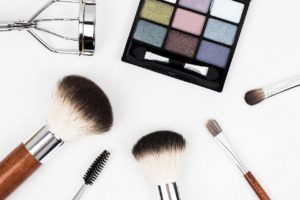On November 30, 23, U.S. Representatives Debbie Dingell (D-MI), Brian Fitzpatrick (R-PA) and Annie Kuster (D-NH) reintroduced H.R. 6519–the “No PFAS in Cosmetics Act“–which would require the Food and Drug Administration (FDA) to ban use of “intentionally added per- and polyfluoroalkyl substances” (PFAS) in cosmetics.
According to the Environmental Protection Agency, PFAS are a group of long lasting manufactured chemicals that have been widely used in industry and consumer products since the 1940s because of their useful properties. There are thousands of different PFAS, some of which have been more widely used and studied than others.
lasting manufactured chemicals that have been widely used in industry and consumer products since the 1940s because of their useful properties. There are thousands of different PFAS, some of which have been more widely used and studied than others.
The “No PFAS in Cosmetics Act,” which was previously introduced in Congress in June 2021, and referred to the House Committee on Energy and Commerce on November 30, 2023, would amend the Food, Drug, and Cosmetic Act (FDCA) to require FDA to prohibit intentionally added PFAS in cosmetics within 270 days of the bill’s enactment.
Notably, the bill does not define PFAS beyond “intentionally added” perfluoroalkyl and polyfluoroalkyl substances. Nor does the bill differentiate which chemicals in the PFAS group–for example, Perfluorooctanoic Acid (PFOA) and Perfluorooctane Sulfonate (PFOS), two of the most widely used and studied chemicals in the PFAS group–should be banned.
Last year’s Modernization of Cosmetics Regulation Act (MOCRA) requires FDA to publish a report within three years (i.e., by end of year 2025) assessing the use of PFAS in cosmetics and their safety, signaling the possibility of further legislation or regulation, if warranted. Senate appropriators also have directed FDA “to develop a plan outlining research needed to inform regulatory decision-making, including potential development of a proposed rule to ban intentionally added PFAS substances in cosmetics.”
The proposed bill reflects the growing number of state legislatures that have enacted or are considering legislation banning the intentional use of PFAS in cosmetics, as well as other consumer products such as children’s products, menstrual products, cleaning ingredients, dental floss, and textiles. For example:
- In 2021, Maine became the first state to require manufacturers of products with intentionally added PFAS to report to the Maine Department of Environmental Protection (DEP) documenting the purpose and amount of each PFAS compound used. The law aims to phase out the use of PFAS in cosmetics, among other new consumer products, by 2030.
- Starting on January 1, 2025, California and Maryland will prohibit the manufacturing, sale, or delivery of cosmetic products containing certain intentionally added PFAS in cosmetics, including PFOA and PFOS, unless they contain technically unavoidable trace quantities of the substances stemming from impurities of natural or synthetic ingredients.
- Starting January 1, 2025, Minnesota and Colorado will prohibit the sale or distribution of cosmetics (among other consumer products) that contain intentionally added PFAS.
- Beginning January 1, 2025, Washington State will prohibit the manufacturing, knowing sale, or distribution of cosmetic products containing PFAS, defined as “a class of fluorinated organic chemicals containing at least one fully fluorinated carbon atom.”
- Oregon’s Toxic Free Cosmetics Act, which bans the sale or distribution of cosmetics that contain intentionally added PFAS (among other chemicals) is scheduled to take effect on January 1, 2027.
New York, which last year banned the use of intentionally added PFAS in apparel, effective January 1, 2025, is considering several bills that would prohibit the sale or distribution of cosmetics (among other consumer products) that contain intentionally added PFAS.
